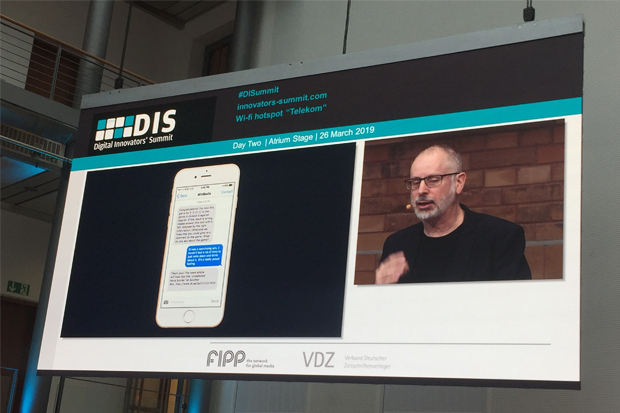
Automated content has been a topic for years but it is still quite rare to find examples of media organisations who are employing it successfully, with some notable exceptions.
Sweden-based United Robots use bots to analyse and automate large datasets, and produce content on sports, property, local business and breaking news, with around 2,000 stories pushed out to its Nordic partners every day.

Speaking at Digital Innovators' Summit (26 March), Robin Govik, co-founder and chairman, United Robots said newsrooms can now make data-informed decisions instead of relying on their gut feelings.
"Our strategy today is to build loyalty; we’re not interested in anonymous clicks and traffic. We use data points to give the user a better experience and, of course, make more money both directly through targeted ads but also indirectly by producing news products that are tailored to users' needs," he explained.
Govik, who is also chief digital officer of MittMedia, one of Sweden’s largest media organisations, looks to a turning point in October 2018 when the site opted for a big change in their homepage.
Only the top three stories on the website and app are manually published by editors. All other features are automated and personalised using AI technology, achieving a 50 per cent rise in click-through rate from their homepage.
"We used to present stories in the digital channels just like we did in the printed newspaper. Everybody got the same selection of stories,” said Govik.
"Personalisation isn’t the goal. The goal is to enhance relevancy. It’s a tool for us to enhance the selection, but we don’t want an entirely personalised feed because the editorial input is still very important."
MittMedia has also seen a subscription conversion rise of 40 per cent since using the sports bots.
United Robots CEO Sören Karlsson explained that fellow Swedish title Östgöta Media has released a brand new site, Klackspark, using purely automated content from simple local datasets. It is dedicated to producing during and after-match coverage for all Swedish football league fixtures.
"It attracted a whole new, younger audience. They could sell this to sponsors and they could truly say: ‘we cover everything about football in this region’," said Karlsson.
Swedish newspaper Aftonbladet opted for a larger, more complex dataset for their sports version Sportbladet, using data supplier Sportsradar. This means they can increase the scope of their coverage to the English Premier League fixtures and in more specific detail. But with the Swedish season about to kick off next month in April, there is an interesting innovation on the horizon.
United Robots will be using text message feature, which will ask the football coaches for post-match quotes to be embedded into the robot-written articles.
"Our platform automatically sends a question out to the coach after a result has been recorded, the question is based on the automatic text that we are producing at the same time,” explained Karlsson.

But nothing is published immediately. The reply goes through several automatic filters before a final verification on the publishers’ end and only then it goes out to the public. Karlsson said this aims to make automated stories more interesting to read.
Aftonbladet also receives 350 stories a day through the breaking news bots, on road accidents and weather warnings, using traffic and weather services along with satellite image maps. However, it is the property bot which has had the most success with MittMedia, attracting more than 1,000 subscribers in the last year.
Because local papers tend to publish real estate news in the form of lists — buyers, sellers, prices and addresses — bots were able to craft this rigid information into more digestible stories.
"Lists don’t work very well online, so we turned every event into one specific story with a headline to find something interesting about the sale. It could be a really expensive or big house," said Karlsson.
"There is more and more data out there, and if that data can tell a story, we can analyse it and produce text, that’s the logic behind United Robots."
Govik said AI was their 'most efficient employee’, producing 64,000 stories and achieving more than 3m page views last year.
He added that the robot and reporters can work to their own strengths while covering each other's weaknesses.
"There’s a reason we use the expression ‘we’re only human’ because humans fail from time to time. Studies show that robots make far fewer errors than humans and never make the same mistake twice," he reasoned.
But he also warned that bad data can have bizarre or disastrous consequences, like when a small field error caused their sports supplier to report a narrow 1-0 defeat as a 10-1 thrashing.
"The headline read something like: ‘humiliating loss for football club’ when in reality the game was pretty even. To tackle these problems, it’s important to take measures to enhance data quality. In this case, our data supplier installed an alert notifier if the result was improbable."
Free daily newsletter
If you like our news and feature articles, you can sign up to receive our free daily (Mon-Fri) email newsletter (mobile friendly).











